Let's talk about nopales, those intriguing cactus pads that have become a culinary adventure for me. I've always been a food enthusiast, always seeking out new tastes and textures, especially those that push the boundaries of what we typically consider "food." And nopales, with their unique origin and slightly intimidating appearance, definitely fit that bill! But trust me, once you get past the initial "what?!" reaction, you'll find yourself hooked on the versatility and deliciousness of this prickly gem.
You might be thinking, "Cactus? Seriously?" It does sound a little strange at first, but I assure you, nopales are a fantastic ingredient with a delightful tangy flavour that's surprisingly delicious. They're packed with nutrients, low in calories, and incredibly versatile – perfect for adding a unique twist to all sorts of dishes.
Over the years, I've experimented with countless ways to cook nopales, from simple sautés to elaborate Mexican recipes, and I can confidently say that there's a world of flavor waiting to be explored within this humble cactus. So, grab your apron, get your chopping board ready, and let's dive into the fascinating world of nopales!
(Part 1) Demystifying Nopales: A Closer Look at the Prickly Truth
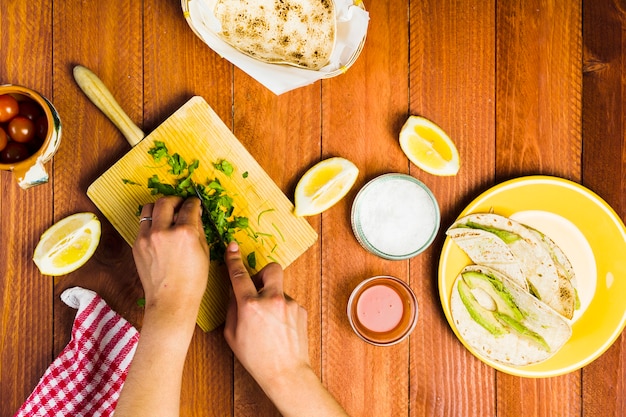
Okay, let's address the elephant in the room, the one that usually stops people in their tracks – the spines. Yes, nopales have those prickly little guys, but don't let them scare you off! You can easily find pre-prepared nopales, already cleaned and deseeded, in many grocery stores, especially those with a good selection of Mexican ingredients. But if you're feeling adventurous, or want to experience the full process, tackling the cleaning yourself is surprisingly manageable.
Cleaning Nopales: A Step-by-Step Guide
Here's how to tame those spines and prepare your nopales for culinary magic:
- First, rinse: Give the nopales a thorough rinse under cold water to remove any lingering dirt or debris.
- Remove the outer layer: Use a sharp knife to carefully remove the outer layer of the cactus pad. This is where the largest, most prominent spines reside.
- Target the smaller spines: You'll likely find smaller spines hidden in the flesh of the nopales. Don't worry, these are easily removed with a vegetable peeler or a sharp knife. Just gently scrape the surface of the nopales to remove any remaining spines.
- Slice and dice: Once your nopales are completely spine-free, slice them into the size you need for your recipe. This could be thin slices for sautées, larger pieces for grilling, or diced for salads.
See? It's really not that complicated! Now that you've conquered the spines, it's time to unleash your culinary creativity!
(Part 2) Nopales 101: Unlocking the Flavour Secrets
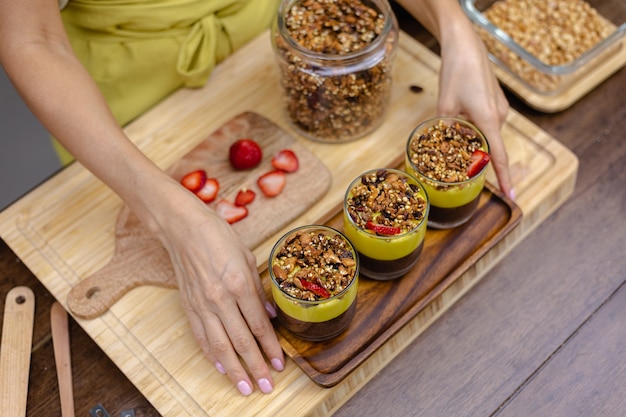
Alright, so you've got your clean nopales – what now? The beauty of nopales lies in their versatility. They can star in a wide range of dishes, from refreshing salads and hearty soups to flavour-packed tacos and vibrant stir-fries. But before we jump into specific recipes, let's talk about the flavour profile of nopales and how to bring out their best qualities.
Think of nopales as a blank canvas, ready to absorb the flavours you add to them. They have a natural, slightly tangy flavour that's reminiscent of asparagus, with a hint of green bean thrown in. This unique flavour, combined with their low calorie count and high fibre content, makes them a delightful and healthy addition to any meal.
Adding Flavour to Nopales: A Culinary Adventure
Here's where the fun really begins – enhancing the natural flavour of nopales through different cooking methods and ingredients. Let's explore some popular techniques:
- Sautéed Nopales: This is a simple and classic way to prepare nopales. Simply sauté them in a little oil with garlic, onions, and your favourite spices. You can add chillies for a kick, or some cumin for a more earthy flavour.
- Grilled Nopales: For a smoky flavour, try grilling nopales. Brush them with olive oil and a bit of salt and pepper, then grill them over medium heat until tender. They're delicious on their own, or you can add them to your favourite grilled dishes.
- Pickled Nopales: For a tangy and refreshing twist, try pickling nopales. Simply combine sliced nopales with vinegar, spices, and sugar, and let them sit in the refrigerator for a few days. They make a great condiment or snack.
(Part 3) Embarking on a culinary journey with Nopales Recipes
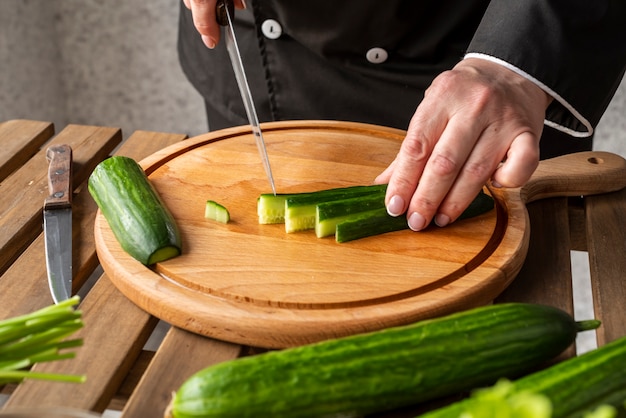
Now that you have a solid understanding of nopales, let's dive into some delicious recipes. Remember, these are just starting points, feel free to experiment and add your own personal touch!
Classic Mexican Recipes: A Taste of Tradition
Nopales are a staple ingredient in Mexican cuisine, adding a unique depth of flavour to countless dishes. Here are some classic recipes that showcase their versatility:
- Nopales con Huevos: This simple dish features sautéed nopales with scrambled eggs. It's a quick and easy breakfast or brunch option that's both delicious and nutritious.
- Tacos de Nopales: These tacos are filled with nopales that are sautéed with onions, garlic, and spices. They're typically served with salsa, guacamole, and sour cream, creating a delightful symphony of flavours.
- Enchiladas de Nopales: These enchiladas are filled with a blend of nopales, cheese, and your favourite sauce. They're baked in the oven until golden brown and bubbly, creating a comforting and satisfying meal.
- Quesadillas de Nopales: These quesadillas are filled with nopales, cheese, and often other ingredients like mushrooms or onions. They're grilled until the cheese is melted and bubbly, making for a tasty and convenient snack or light meal.
Beyond Mexican Cuisine: Creative Nopales Adventures
Nopales aren't just for Mexican food! They can be incorporated into a wide variety of dishes, adding a unique twist to your culinary repertoire. Here are some ideas to spark your imagination:
- Nopales Salad: Add diced nopales to your favourite salad for a crunchy and tangy twist. They pair well with greens, tomatoes, onions, and a light vinaigrette, adding a delightful textural contrast.
- Nopales Soup: Add nopales to your favourite soup for a unique flavour and texture. They work particularly well in vegetable or tomato soups, adding a subtle depth of flavour.
- Nopales Stir-Fry: Stir-fry nopales with your favourite vegetables and protein for a healthy and flavourful meal. The nopales add a delightful textural element and a unique flavour that will surprise and delight your taste buds.
- Nopales Pizza: Top your favourite pizza with nopales, cheese, and other toppings for a creative and delicious meal. The nopales add a touch of unexpected tanginess and a pleasant crunch that takes your pizza to the next level.
(Part 4) My Personal Nopales Adventures: A Culinary Journey
I've been cooking with nopales for a while now, and it's been an exciting and delicious journey. I've tried countless recipes, from traditional Mexican favourites to my own unique creations. And let me tell you, every experience has been a testament to the versatility and deliciousness of this remarkable ingredient.
The Recipe That Changed My Mind
One of my first encounters with nopales involved a recipe for nopales and chorizo tacos. I was a bit sceptical at first, but I decided to give it a go, and it was a revelation! The smoky flavour of the chorizo paired perfectly with the tangy nopales, creating a delicious balance that completely changed my perspective on this unique ingredient. It was a taste that I couldn't get enough of!
My Own Nopales Creation: A Stir-Fry Surprise
One day, I was experimenting in the kitchen, trying to come up with a new way to use nopales. I had some leftover stir-fry ingredients and thought, why not add some nopales? I sautéed them with garlic, ginger, soy sauce, and a touch of chilli flakes, then tossed them in with the stir-fry. It was a huge success! The nopales added a unique texture and flavour that really took the dish to the next level, proving once again the versatility of this amazing ingredient.
These experiences taught me that nopales are a truly versatile ingredient that can be used in so many different ways. It's all about experimentation and discovering what you enjoy! The journey of culinary exploration with nopales is always exciting and rewarding.
(Part 5) The nutritional powerhouse: Why You Should Embrace Nopales
Okay, so nopales are delicious, but what about the health benefits? Well, they're actually packed with nutrients, making them a fantastic addition to any diet focused on health and well-being.
The Nutritional Benefits of Nopales: A Wealth of Goodness
Here's a closer look at some of the key nutrients found in nopales:
| Nutrient | Amount per 100g |
|---|---|
| Calories | 17 |
| Fibre | 3.4g |
| Vitamin C | 8mg |
| Potassium | 230mg |
| Calcium | 40mg |
This makes nopales a great choice for people who are looking to maintain a healthy diet. They can help you feel full and satisfied, regulate your digestion, and boost your immune system.
(Part 6) Sourcing Nopales: Where to Find This Culinary Treasure
So, you're ready to try nopales, but where do you find them? Well, it's not always the easiest thing to find, especially if you're not in a region where they're commonly consumed.
Your Local Mexican Market: A Culinary Goldmine
The best place to find nopales is at your local Mexican market. They're usually stocked in the produce section, often pre-cleaned and deseeded, making them incredibly convenient. You can also find them canned or frozen, but fresh nopales are always the best option if you're seeking the most authentic flavour.
Online Retailers: Expanding Your Culinary Horizons
If you can't find nopales locally, don't despair! You can often find them online. There are a number of retailers that sell fresh, canned, and frozen nopales, making it easy to expand your culinary horizons no matter where you live.
Growing Your Own: A Culinary Adventure
If you're really ambitious, you can even grow your own nopales! They're relatively easy to grow in warm climates, and they can even thrive in dry conditions. You can find seeds or young plants at some nurseries or online. Growing your own nopales is a truly rewarding experience, giving you a sense of connection to the food you eat.
(Part 7) Tips for Cooking with Nopales: Mastering the Art of Cactus Cuisine
Now that you know where to find nopales, let's talk about cooking them. There are a few tips that can help you get the most out of this unique ingredient, turning your kitchen into a haven for delicious cactus creations.
Boiling for Tenderness: The Key to a Delightful Texture
Nopales can be a bit tough, so it's a good idea to boil them before cooking them further. This will help them become more tender and easier to digest. Simply blanch them in boiling water for a few minutes before using them in your recipes.
Adding Flavour with Spices: Unleashing Culinary Creativity
As mentioned before, nopales are like a blank canvas, ready to absorb the flavours you add to them. Experiment with different spices to create your own unique flavour combinations. Cumin, oregano, chilli powder, garlic, and onion are all great choices, each adding its own distinct personality to your dishes.
Creating Variety with Different Textures: A Culinary Playbook
You can slice nopales into different sizes to create different textures. For example, you can slice them thinly for a delicate texture, perfect for salads and sautés, or chop them coarsely for a more substantial texture, ideal for stir-fries and soups. The choice is yours, allowing you to create culinary masterpieces tailored to your preferences.
(Part 8) FAQs: Unveiling the Secrets of Nopales
Let's face it, there are a lot of questions you might have about nopales. Here are some of the most frequently asked questions, along with detailed answers to guide you on your culinary journey.
1. What do nopales taste like?
Nopales have a natural, slightly tangy flavour that's reminiscent of asparagus, with a hint of green bean thrown in. They're also very low in calories and high in fibre, making them a healthy and satisfying addition to any meal.
2. Are nopales safe to eat raw?
It's not recommended to eat nopales raw, as they can be tough and difficult to digest. It's best to cook them before eating them, whether that's sautéing, grilling, or using them in soups or salads. However, you can add raw nopales to salads for a crunchy texture, though be sure to remove all spines first!
3. How long do nopales last in the fridge?
Fresh nopales will last in the fridge for about 3-5 days. You can also freeze them for later use. To freeze nopales, blanch them in boiling water for a few minutes, then drain them and freeze in a freezer bag. Frozen nopales will last for several months, allowing you to enjoy their unique flavour whenever you desire.
4. Can I eat the spines of nopales?
Absolutely not! You should never eat the spines of nopales. They're very sharp and can cause serious injury. It's important to carefully remove the spines before cooking or eating nopales.
5. Where can I find nopales recipes?
There are plenty of nopales recipes available online and in cookbooks. You can search for recipes specifically for nopales, or you can find recipes that include nopales as an ingredient. Don't be afraid to experiment and create your own unique recipes, using nopales as a blank canvas for your culinary creativity.
I hope this article has inspired you to give nopales a try. It's a truly unique and delicious ingredient that can add a whole new dimension to your cooking. So, get out there, explore the world of nopales, and discover all the wonderful things you can do with this versatile cactus!
Everyone is watching

How to Cook Frozen Lobster Tails Perfectly: A Step-by-Step Guide
RecipesLobster. Just the word conjures up images of lavish meals, special occasions, and a taste of luxury. But let's...

Pigs in a Blanket Cooking Time: How Long to Bake for Perfect Results
RecipesAh, pigs in a blanket. Just the name conjures up images of those delightful little parcels of crispy pastry en...

Pork Fillet Cooking Time: How Long to Cook It Perfectly
RecipesPork fillet, or tenderloin as it's sometimes called, is a real favourite in our house. It's so versatile, and...
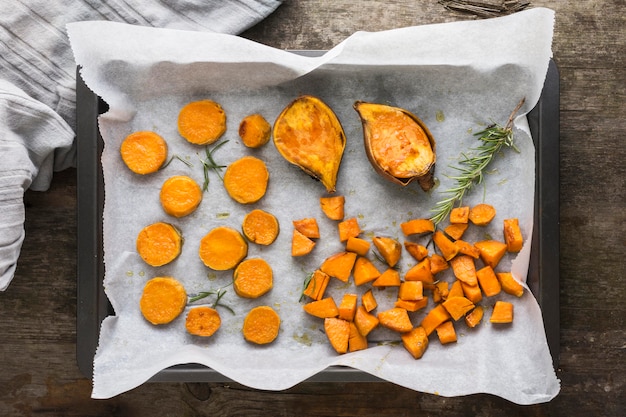
The Ultimate Guide to Cooking Sweet Potatoes: From Roasting to Mashing
RecipesSweet potatoes. Just the name conjures up images of warm, comforting dishes, bursts of vibrant color, and a to...
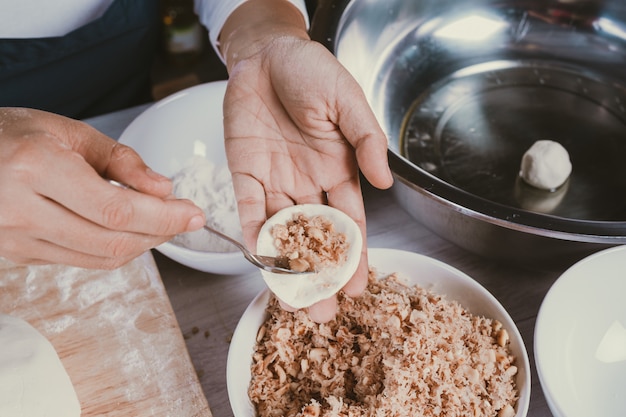
The Ultimate Guide to Tender, Juicy Pulled Pork
RecipesRight, let's talk pulled pork. It's one of those dishes that just screams "comfort food," doesn't it? I mean...
